
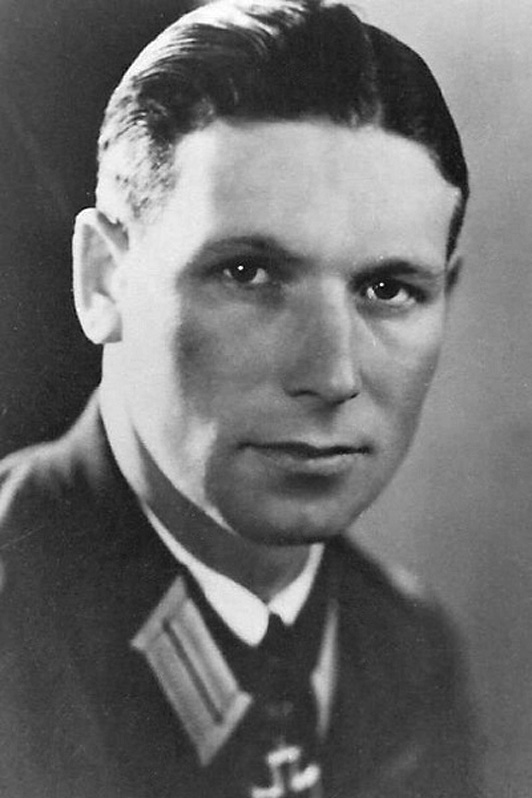
Interview with Major Hans Drexler, Knight's Cross winner and veteran of the Battle of Kursk, Hamburg, 1983.
Drexler was with the Grenadier-Regiment 232/102.Infanterie-Division.
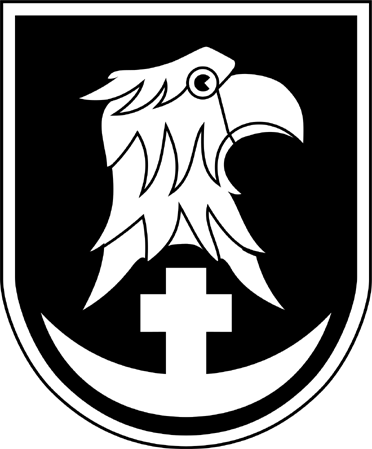



Interview with Major Hans Drexler, Knight's Cross winner and veteran of the Battle of Kursk, Hamburg, 1983.
Drexler was with the Grenadier-Regiment 232/102.Infanterie-Division.


Hans: Sure, it was no different than living anywhere else during any other time. It was my home, and like many others we accepted who was in power and did the best we could. I was born in 1913 and I remember the Weimar times, I was born in Chemnitz, which now lies in the east. You young people do not know what we lived through, and I pray you never go through what we did. I remember life being hard in the 20s, there was not much work and people went hungry and homeless. I remember seeing several widows in my town who had to live together since landlords kicked them out for not being able to pay rent. I was very young but still remember seeing the looks on the faces of the people, dirty, hopeless, and angry. When the National Socialists came on the scene they gave people hope that life would get better, and we believed them.
Hitler had to fight many political parties, especially communists, for control, but in 1933 he won and became chancellor. I can tell you in just two years time Germany was a changed country. Work was plentiful and a new attitude was coming forward. The people were happy and full of life again. That is how Hitler won us over, he restored the things we missed, and made Germany even better than before. His National Socialist idea bonded the entire nation into one, no matter what dialect, or station you were born into, you were a German. It was quite exciting for a young man. I can't sound too excited about this though, we must be careful. I will say that for most all Germans life greatly improved for us. There was work with better pay and peace and morality was brought back. I had learned in the 20s that Berlin was a city to stay away from, children were sold for bad purposes. There was a street where single mothers could take a child and sell them.
Many loose women would become pregnant and either have an abortion, or sell the child, some even abandoned them. Parts of Germany had become the playgrounds for the evil vices of corrupt men. This all went away after 1933, a more normal way of life prevailed, and those who caused these things ran away.
I will share that I wanted to join the SA, but never did. I was always told they were revolutionaries and to stay away. So you see, life in Germany was very good, we were a nation reborn you could say. This is how Hitler drew in the people; he kept promises and made life better.
How did you come to be in the army?
Hans: I was out of school by 1935 and a requirement the National Socialists laid down was all young people had to serve in the labor carps. This was for two reasons, to help with state construction and beautification, and to teach that everyone could chip in and get dirty together. This was designed to build comradeship between classes of people.
In 1935 new calls went out to expand the small postwar armed forces. The victors had enforced strict rules on Germany, and Hitler renegotiated these into new treaties. These allowed for a larger army, and recruiters came into our labor camp to sell their trade. I jumped at the idea of being a soldier.
I applied and was taken right away; my superiors noticed how ambitious I was as I took training very seriously. I was proud to wear the uniform of this nation, and honored all that our history represented. I landed into the 7th infantry regiment which had a long history.
How did you feel when war was declared in 1939?
Hans: Well boy, I must give you a history lesson. Germany had fair relations with Poland, in the first war we gave them independence, and they helped us fight Russia. They even defeated the Bolsheviks later on. The problem in my time was they refused to negotiate lands taken from Germany.
On September 1st we attacked the Poles, rightly or wrongly, and then on September 3 the British and French declared the formal war. You see, the action against Poland was to be a local action, not a war. It was thought we would beat Poland, restore former land, and then have final peace.
This was not to be, what we know now was the Allies were working with Poland behind the scenes to bolster them and to encourage them to take an aggressive stand for keeping German land. Of course we can't say that today, they are a powerful Warsaw state protected by the Soviet Union.
I will say too, there is truth in what Hitler and the National Socialists claimed about Germans in Poland. I was close to the border of Poland, and would see the refugees coming into the Reich. They looked miserable, and all told stories of persecution all because they were former German citizens, they were treated very badly when Poland was given the land.
These were Germans who had lived on the land for generations, and then the Versailles Treaty made them Polish citizens overnight and took away their rights as Germans. The Poles forced them to change to Polish ways, or face hardships. Many who refused to bow to the new master were boycotted, threatened, beaten, and some killed.
The Polish government did nothing and brushed it off as if they just deserved it for not accepting Polish rule. This was brought to Hitler's attention, and along with already wanting a return of lost land, set him on a course for war. You do not know but I will tell you, there were many peace proposals sent to Poland, but they rejected them all.
Today they are never mentioned here in the press when the war is brought up. It is as if a fairy tale is being told, and the press makes it a fact beyond reproach. Intellectuals have abandoned the pursuit of truth and have all fallen in line with the victors.
I truly believe Hitler wanted peace but was also pressed to do something. The Poles were silent on this after the war, they knew it could be disproven by our leaders, but now they have free reign to say what they want, with Russia's blessing. They accuse us of attacking them for no reason, killing their officers at Katyn, and putting them in the camps. These are all claims which I do not believe and think when the time comes the truth will come out.
I remember the feeling being neither happiness nor sadness. The Poles seemed to have asked for war and our leader was willing to give it to them.
You won the Knight's Cross, what was it like being a winner of this award?
Hans: Yes I was a bearer of the Knight's Cross, back then it meant a lot more than it does today, I will say. It was a proud moment to have it put around my neck.
When you wore this cross it got attention, and many fans. There were small booklets the children collected for the bearers. I was given one once by a nurse who collected them all, it was of GŁnther Prien.
I was awarded the Knight's Cross for my unit's successful defense of positions by Orel after the failed offensive. The Soviets had us surrounded but we held out and defeated their powerful attacks. The Soviets were pretty weakened by Operation Citadel, but outnumbered us by probably 4 to 1.
My men held fast and caused them further heavy losses until we were relieved. We showed Ivan that even though we were outnumbered, we could still beat them. For this action I was put up for the award, and it was approved. I already held the German Cross [Deutsches Kreuz in Gold] so the Knight's Cross was the next succession.
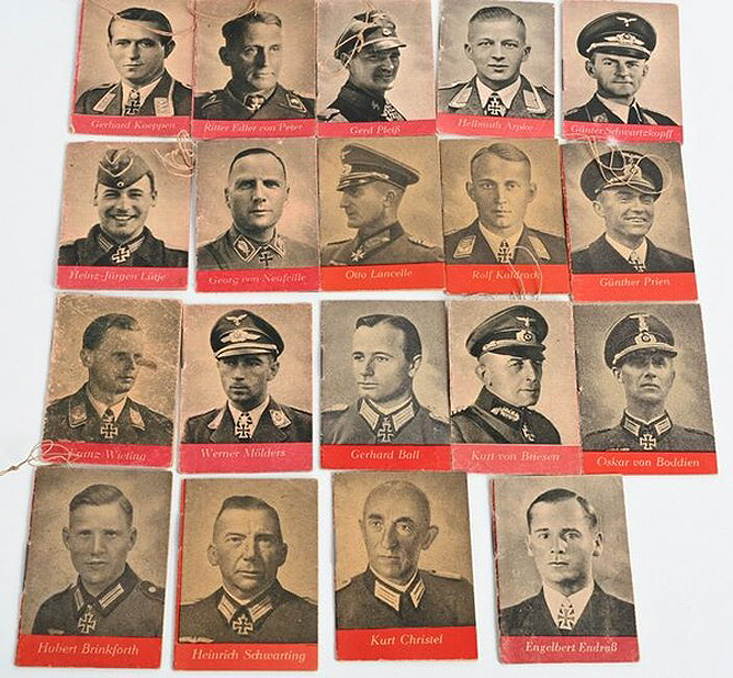
[Above: The little booklet mentioned above of GŁnther Prien is seen here on the second row from the top, far right. These collectible little books were released by the Winterhilfswerk des Deutschen Volkes (Winter Relief of the German People), or WHW for short.]
[Above: GŁnther Prien, handsome and dashing, like so many National Socialist warriors of the day.]
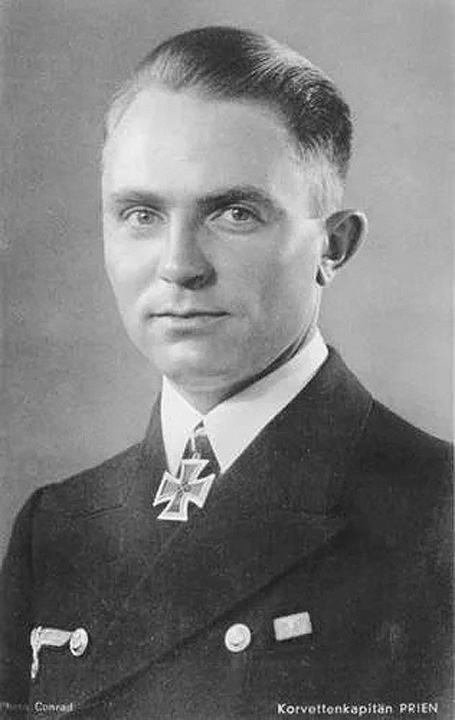
When did you realize the war was not winnable?
Hans: For me personally I had fears in 1941 that we were biting off more than we could chew. Russia alone was too much for us to handle, the generals who said we could kick in the front door and the whole house would collapse were wrong. We fulfilled our duty to our country, regardless of the odds. It was made clear to us, even in the press, that we were outnumbered greatly by our enemies.
The vast majority of us had faith that providence would be on our side and see us through to a final victory. I remember thinking even in 1945 that a miracle weapon would come and save us, snatching victory from defeat. The realist in me said we lost the war after the Kursk offensive.
Our intelligence said Russia was hurting badly by 1943, and was open to make a negotiated peace. That damned attack on
well-prepared placements which expected us was foolish. It gave them new life and lifted their morale. It was the beginning of the end. [British intelligence informed their commie Soviet allies where the Germans would attack. If not for the USA's gargantuan Lend-Lease program the Soviets would have collapsed as the Germans predicted.-Ed.]
Even if Normandy would have been won, the east front had collapsed, and there was nothing short of a miracle that would have saved us. We were retreating faster than the enemy could advance.

Hans: Very well. I was part of army group center; I will tell you what I saw. The first large city we came into was Bialystok [the largest city in northeastern Poland], which suffered through the Soviet occupation. While the people welcomed us as liberators, I saw things I wish I could unsee. Jews had been killed, whole families, by the people. We stopped in the city to settle things down, the mobs were enraged, the SS and police had to arrest many to stop it. The people demanded we know what happened, so they sent representatives to our generals and officers. They said when the Soviets came, the city's large Jewish population aided the Soviets. They turned in many patriots, Christians and dissenters.
Later on the Soviets emptied the prisons, and the former prisoners went on a rampage of killing those who had turned them in. Whole families were killed or taken away, property was taken, and wives were raped in front of their husbands, before being shot. [to be clear, he is speaking of the German liberation of the east, during the chaos before the Germans were able to establish order.-Ed.] This is what the mob told us, and it was a day of revenge against those who had committed crimes or aided in crimes against the people. They seemed upset at us, that we had stopped them from these killings and took their weapons. We had to restore order before we left. The rear SS soon came in and allowed fast trials where many of them who had survived the first attacks were executed. I saw this in many places that had large populations, the people exacted revenge on those who helped the Soviets.
We were welcomed everywhere we went, people came out to wave, give flowers or water, and greet us. It made us feel as if we were on a great crusade, and people thanked us for it. Those were the times to me; warm and sunny days, smiling faces, and a retreating foe. For my years on the east front I remember the civilians always being friendly and giving aid to us. The women loved to cook meals when they could, and sew our uniforms. In the towns and cities bazaars were set up to sell us things.
I read Soviet accounts of abuses and crimes, but I say they are false propaganda, it is not how I remember the east. I am sure there were acts of cruelty, but it was not widespread and I never saw any of it. The worst I saw was making Jews and others clean up Stalin's scorched earth damage.
What was the battle of Kursk like for you?
Hans: I have already told you a little, this is where the Knight's Cross came from. My regiment was to the south of the battle, south of Orel. We held small villages against a potential flank attack. We would hear the roar of battle, and see the smoke, but we stayed fairly quiet. We could hear the sound of rockets firing often, and saw the air battles that were happening.
Some units would go on the offensive to scout the enemy lines, to verify they were not planning a counter-thrust. My unit stayed quiet for the most part and our men were always kept at the ready. During this time all leaves were canceled, unless it was an emergency, as we needed everyone on the line.
Our actions did not come until after the battle had been called off, the Russians then launched attacks on us to break open the line. We faced tanks and infantry supported by massed artillery. My men held firm in these attacks, even while being surrounded. The Waffen-SS attacked the flank, and we were freed after heavy fights.
This fighting was severe; often we faced the enemy in close combat. My men fought well, often without much sleep. We had caffeine pills we could hand out sparingly. These were used for men on guard duty or if we were in heavy non-stop fighting. We had very few of these so their use was done sparingly. They did a good job of keeping our men focused and alert.
The enemy had something like this as well, and we could tell when they were using it, they had wild bloodshot eyes, and they were usually full of vodka as well. I remember that of the Russians, they used alcohol as a courage maker. Once we captured an officer who was so drunk by the time he reached our lines that no one shot him. We took him prisoner and he laughed with us all the way to the rear.
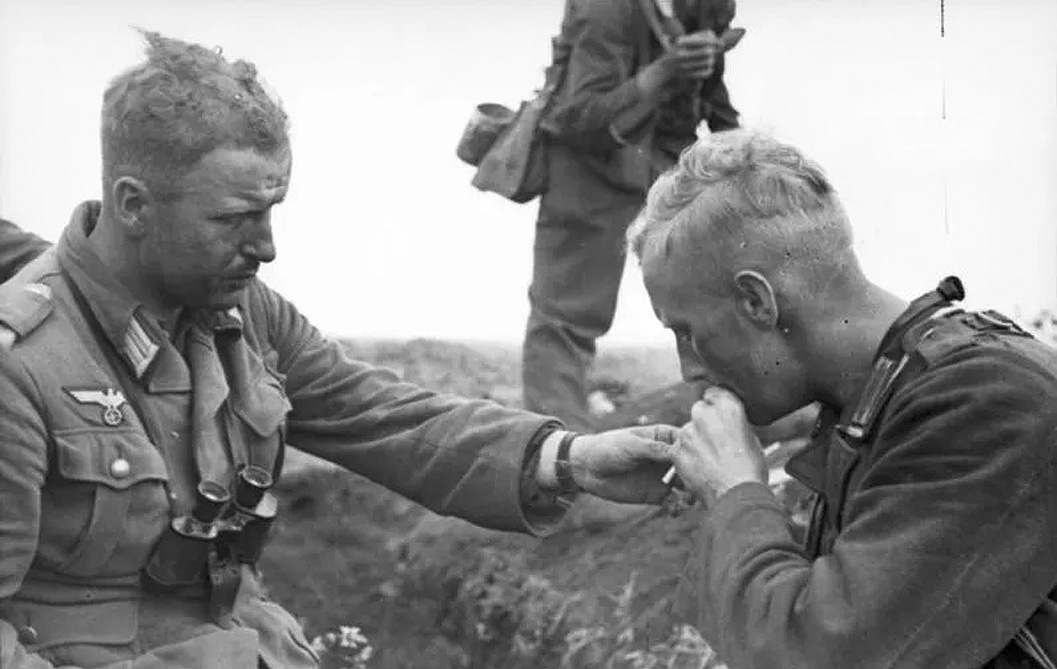
[Above: A smoke break during a lull in the fighting on the southern side of the Kursk battlefield.]
[Above: A graveyard of monsters. German and Russian armor lay dead together after the battle of Kursk.]
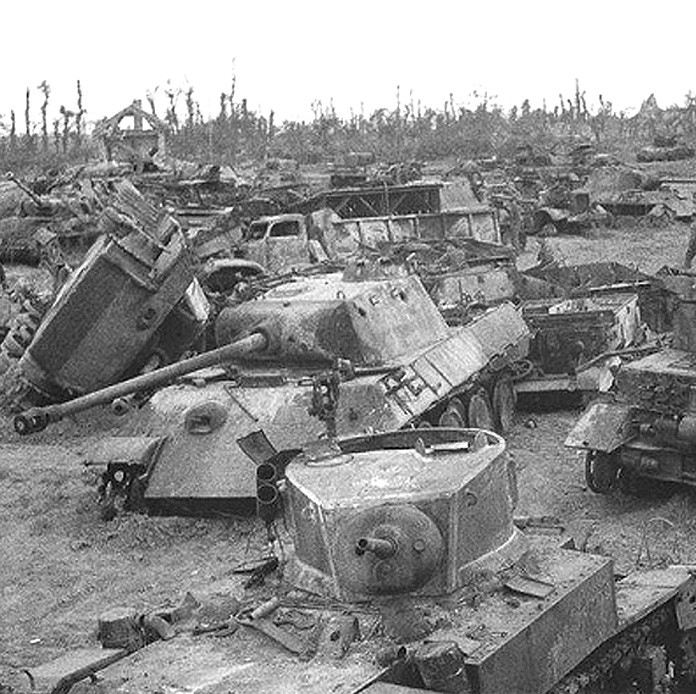
Back to Interviews